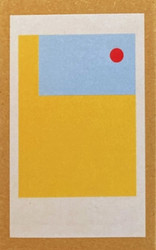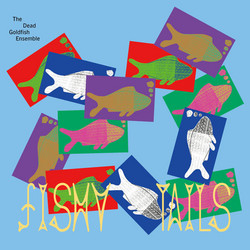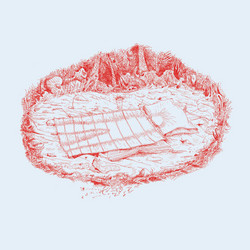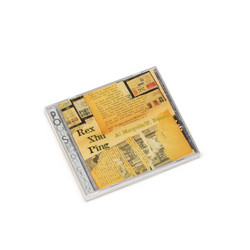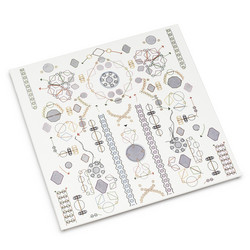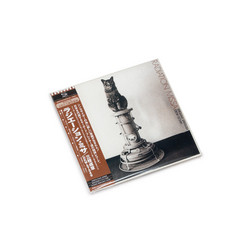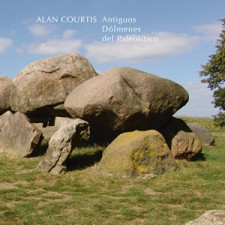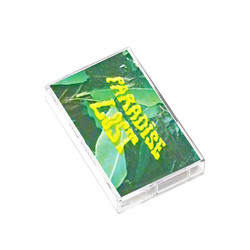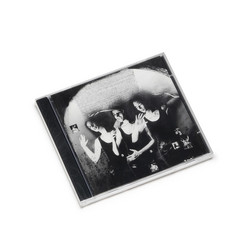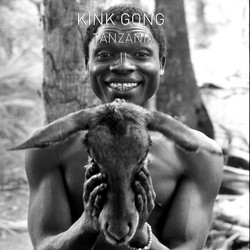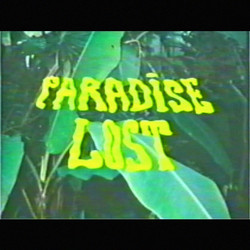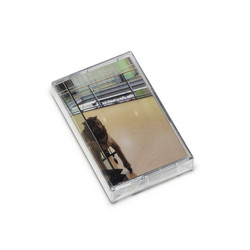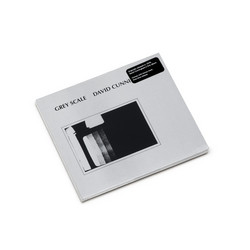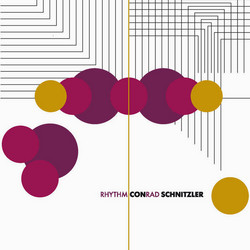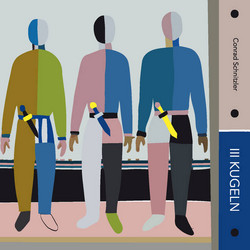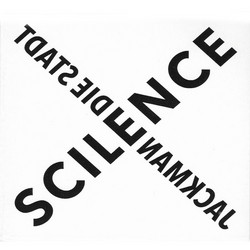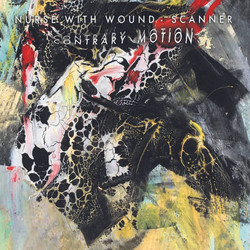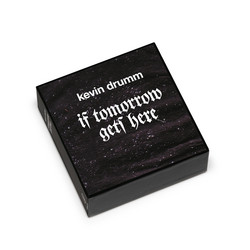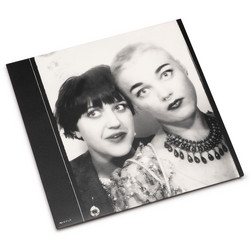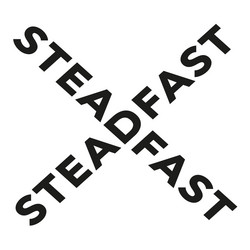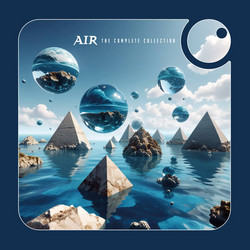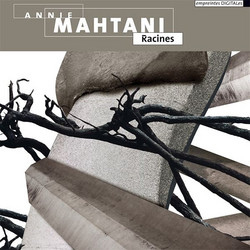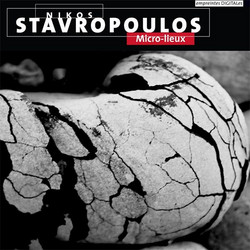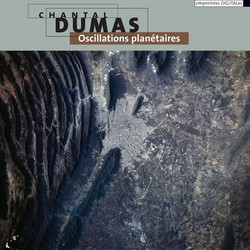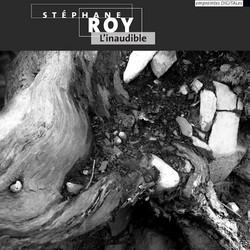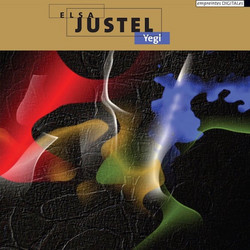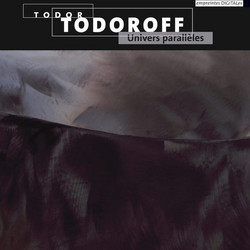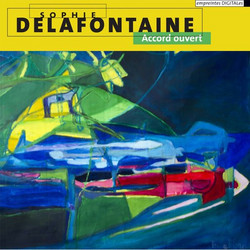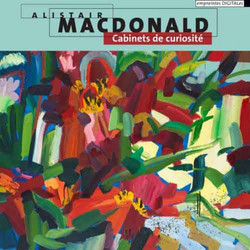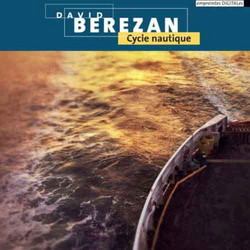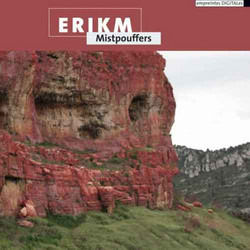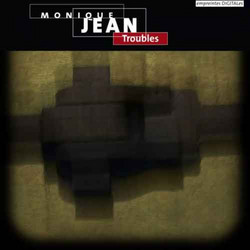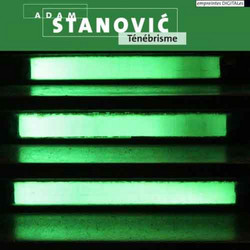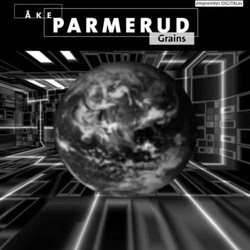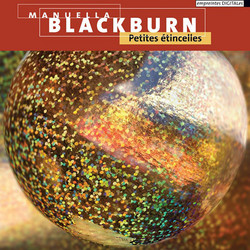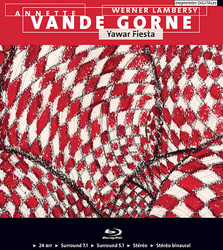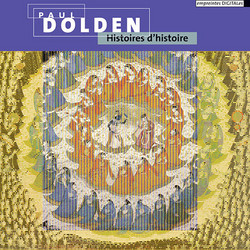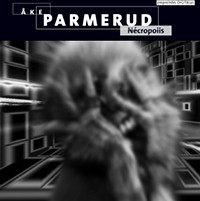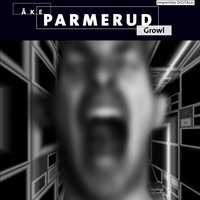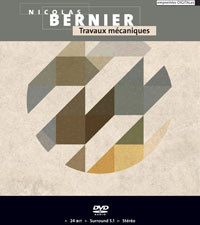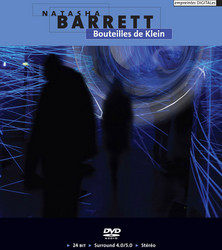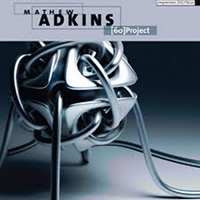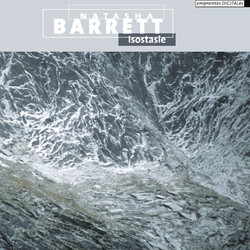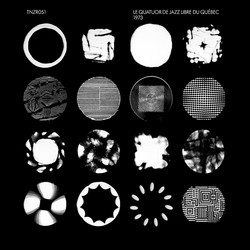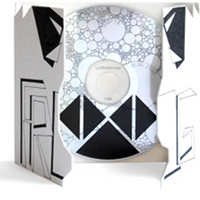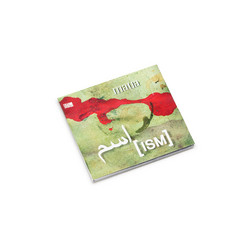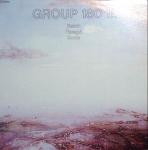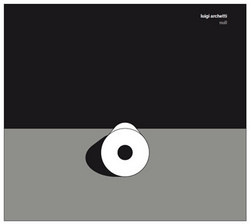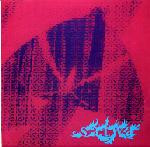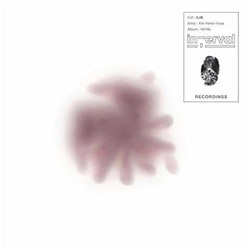File under: Experimental / WeirdMusique Concrète
"If we recognize that each composer tends to privilege one dimension of musical discourse or another (for example: timbre, harmony, or instrumental virtuosity) in his work and thus conjure up a ‘style,’ listening to the music of Alain Thibault is like listening to a game of rhythms but mostly a game of attacks. The constant and abrupt contrast between silence (or an harmonic background serving a similar function) and the sound itself—cutting and incisive, percussive, vigorous and energetic, and resolutely urban—is here the central core from which the dynamic of the work develops. If there are musics to be listened to with your head between your hands, we should ideally listen to this one at full volume, in a sports car, under a radiating sun, in the middle of intertwining expressways. The resultant energy comes from—without apology—the resources of ‘studio pop,’ rock and jazz. Actually, Alain Thibault consciously rejects many positions of the so-called ‘contemporary’ music as early as Varèse or Messiaen. And this is precisely what bothers those who like to clearly divide genres. Some may have been scandalized by that central place that is suddenly occupied by the most distinctive element of ‘pop’ music: the drum solo… But it is in vain that one would look on stage for the amazing rhythm section in OUT, ELVIS (Électro-lux, vertige illimité synthétique) or Volt: the computer, has replaced it, guided however by a hand whose control is impressive.
This duel of will and pure technique seems to have displaced itself from the creative stage to the performance itself. Now the soloists have to juxtapose themselves almost with inhuman precision to an implacable, insensitive and independent tape. The process is similar to those breathtaking ensemble passages, in perfect synchronization, previously found in the music of musician like Frank Zappa who, in turn, probably was influenced by the best American Big Bands. In this respect, the Concerto pour piano MIDI (Concerto for MIDI Piano) is of formidable performance difficulty (imagine a Cybernetic Prokofiev), whereas Le soleil et l’acier (Sun and Steel) might have been subtitled “The Lung and the Machine” or “Breath against Dynamo.” The winner of the event is not necessarily the one we think. At the outset, essentially rhythmic with a frenetic quality, recently the music of Alain Thibault seems to give an evergrowing place to melody. As if emotion had opened a path, a voice…" Jean Boivin
This duel of will and pure technique seems to have displaced itself from the creative stage to the performance itself. Now the soloists have to juxtapose themselves almost with inhuman precision to an implacable, insensitive and independent tape. The process is similar to those breathtaking ensemble passages, in perfect synchronization, previously found in the music of musician like Frank Zappa who, in turn, probably was influenced by the best American Big Bands. In this respect, the Concerto pour piano MIDI (Concerto for MIDI Piano) is of formidable performance difficulty (imagine a Cybernetic Prokofiev), whereas Le soleil et l’acier (Sun and Steel) might have been subtitled “The Lung and the Machine” or “Breath against Dynamo.” The winner of the event is not necessarily the one we think. At the outset, essentially rhythmic with a frenetic quality, recently the music of Alain Thibault seems to give an evergrowing place to melody. As if emotion had opened a path, a voice…" Jean Boivin
Details
